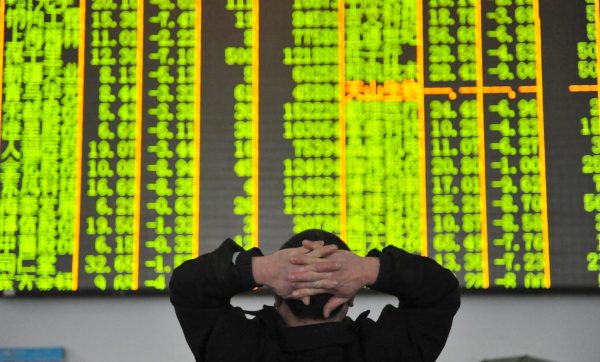This sets an important precedent as the first time a Chinese court has ruled on foreign high frequency trading in China.
Unlike their Western counterparts, the Chinese futures markets publish price quotes just twice a second. This means that a high frequency trader — who uses algorithms to buy and sell shares at high speeds — is not supposed to know what is going on in the market between these half-second intervals. But this restriction does not technically apply to high frequency traders with a ‘direct connection’, or who trade directly in the market rather than through a brokerage firm. This direct connection method is illegal in China.
But this is exactly the method that Eastern Dragon used in 2015, meaning that it could observe the real-time quotes and transactions of all other trading accounts in the same futures broker with which it opened its accounts. This gave Eastern Dragon an informational advantage over other firms, and from June–July 2015 this advantage also yielded Eastern Dragon about US$100 million in profits.
The government regulator’s handling of Eastern Dragon weighs heavily on the future of other foreign high frequency traders in China. For instance, in 2016 Citadel and IMC were also investigated for high frequency trading misconduct in the Chinese stock-futures markets in 2015. Both cases are now awaiting sentences.
Over the past few years, many foreign high frequency traders have been attracted by the huge potential profits in Chinese derivatives markets. Most of these high frequency traders disguise themselves as international trade or IT companies, which helps them circumvent Chinese regulations. International high frequency traders like Citadel, Tower Research, IMC and Optiver are some of the major traders in China, predominantly trading in Chinese commodity futures markets. Their success has encouraged other high frequency traders — such as Virtu and Teza — to follow suit.
While Eastern Dragon’s sentence initially generated some panic in the market, a longer run retreat of foreign high frequency traders from the Chinese markets is unlikely given the enormous amount of money on the table. Many companies are completely undeterred. Optiver, for example, has stepped up its efforts to circumvent regulations through joint ventures with domestic futures brokers. More foreign high frequency traders will likely follow suit if this venture turns out well.
So what does the ruling mean for perceptions of high frequency trading in China?
On the one hand, high frequency traders have greatly contributed to the success of the Shanghai 50 ETF (exchange traded fund) — an options market tracking some of the mainland’s biggest companies. While other financial markets were widely blamed for the 2015 crash, the ETF options market remained quite stable thanks to major high frequency traders in the market providing liquidity and market stability.
On the other hand, problems regarding how to regulate both domestic and foreign high frequency traders still pose as a serious challenge for Chinese authorities and the future of high frequency traders in China. As elsewhere, the impact of high frequency traders on the financial markets has been in the throes of heated debate in China since the latest market rout. Some market professionals believe that high frequency traders provide liquidity and make the markets more efficient, while others are concerned that they increase price volatility and consume liquidity when it is needed during crashes. Further study is therefore needed to clarify the role of high frequency traders.
Despite their shortcomings, domestic high frequency brokers will continue to play an important role in China’s financial market into the future. A more diverse range of financial products may already be on the Chinese government’s agenda. Morgan Stanley Capital Investment has been negotiating with Chinese regulators to relax their constraints on certain derivative products. A reasonable hypothesis is that index and stock options will soon be launched to counteract the potential competition from overseas markets and to protect both domestic and international investors from exposure to certain risks. As with existing Shanghai 50 ETF option market, high frequency traders will most likely play a key role in these planned options markets.
Qian Han is Associate Professor at the Wang Yanan Institute for Studies in Economics, Xiamen University.

